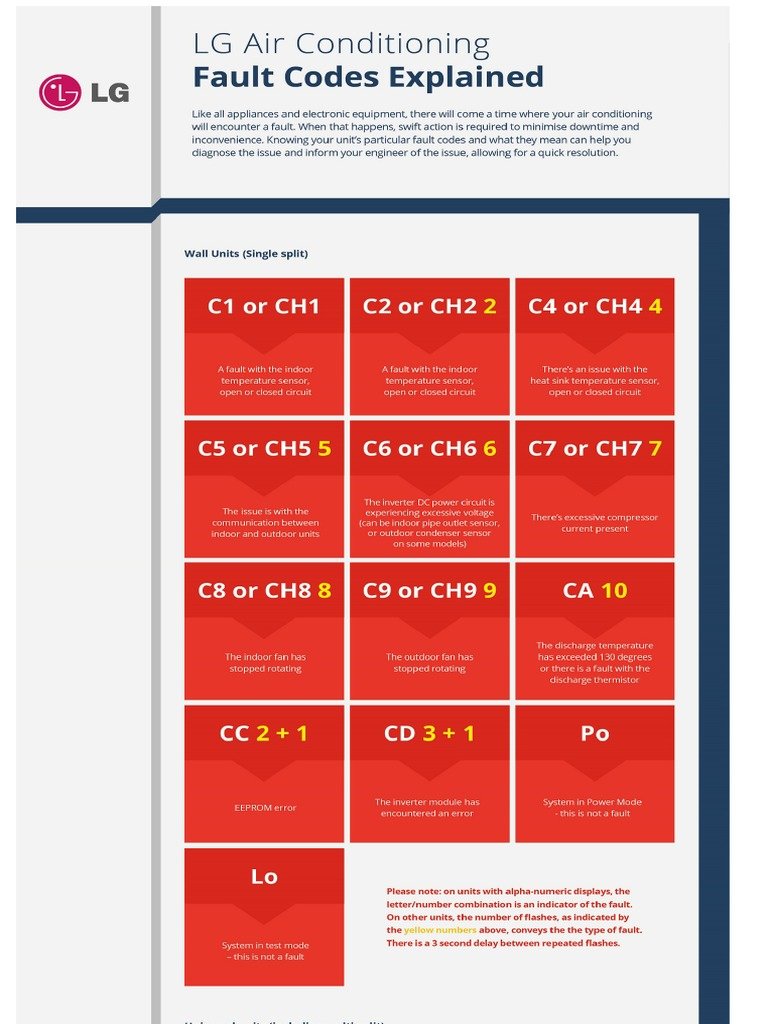
Air conditioners, like any other sophisticated piece of machinery, have a way of telling us when things aren’t running smoothly. The E1 error code is one of these signals. It’s a call for help from your AC unit, much like a smoke signal might be when you’re lost in the woods. This code can mean different things depending on your model, but generally, it’s related to issues with the sensor or the system’s circuitry. Understanding whether it’s a minor issue or something more serious is crucial. So, how do you know when to wave the white flag and call in the cavalry (a.k.a. the technician)?
Understanding the E1 Error Code
Let’s dive deeper into what the E1 error code actually represents. In many LG air conditioners, the E1 error signals a problem with the unit’s sensors. These sensors are like the senses of your AC — they help it feel the environment and adjust accordingly, ensuring your room stays at the right temperature. Now, if these sensors aren’t working correctly, the unit might not cool effectively, much like how a blindfolded person might struggle to find their way.
There are several components involved here: the temperature sensor, the humidity sensor, and sometimes even the pressure sensor. Each of these plays a pivotal role in the air conditioner’s operation. If the temperature sensor fails, the AC might misjudge the room temperature, leading to inefficient cooling. Similarly, if the humidity sensor is off, the air might feel clammy or too dry. In essence, when these sensors send faulty signals, your air conditioner might as well be shooting in the dark.
Before you panic, remember that sometimes an E1 error might just be a temporary glitch. Think of it like when your smartphone freezes — a simple restart might do the trick. Try turning off your AC unit, unplugging it, and then plugging it back in after a few minutes. Often, this gives the system a chance to reset. If the error persists, it might be time to consider calling in a professional.
When to Call a Technician
So, how do you know it’s time to bring in a professional? Here’s the deal: if the E1 error code refuses to budge even after a reset, it’s a clear sign that the problem might be beyond simple DIY fixes. In cases where the sensors, like the temperature or humidity sensor, are faulty or damaged, repairing or replacing them requires the expertise and tools only a technician has.
Furthermore, if you notice other issues accompanying the E1 error, such as strange noises from the unit, water leaks, or a complete shutdown, these are indicators that the problem might be more complex. Much like how a car with strange noises might need a mechanic, your air conditioner needs a technician to delve into its intricate system and set things right.
Beyond the technical fixes, a technician can also perform a thorough inspection to identify any underlying issues that might not be immediately visible. This proactive approach can prevent future breakdowns, saving you from those sweltering days when the AC decides to quit entirely.
Preventative Measures
As the saying goes, “An ounce of prevention is worth a pound of cure.” This holds true for your air conditioner as well. Regular maintenance is key to avoiding the hassle of error codes and unexpected breakdowns. Much like how routine oil changes keep your car running smoothly, regular servicing keeps your AC in top shape.
Consider scheduling annual maintenance checks with a certified technician. During these visits, the technician can clean key components such as the filters and coils, check the sensors, and ensure that all systems are functioning optimally. It’s like giving your AC a wellness check — ensuring any small issues are caught and resolved before they balloon into larger problems.
Additionally, keep your unit clean by regularly checking and cleaning the filters. This ensures that airflow remains unobstructed and the system doesn’t have to overexert itself to cool your space. A little attention can go a long way in extending the life of your appliance and keeping those error codes at bay.
In conclusion, encountering the E1 error code on your LG air conditioner doesn’t have to be a cause for alarm. By understanding what it signifies and knowing when to call a technician, you can ensure your unit gets the care it needs. Remember, just like how you’d call a doctor when a home remedy isn’t enough, don’t hesitate to call a professional when your AC sends distress signals. Investing in timely maintenance and professional help can guarantee a consistently cool and comfortable home environment.